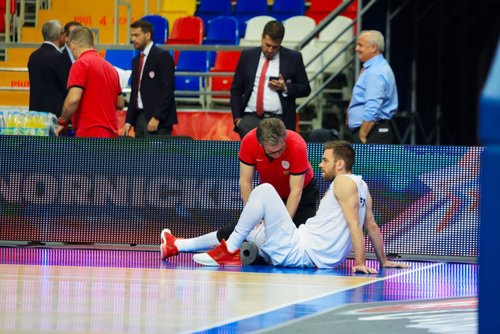March is a special month for all athletes and physically active individuals as it is National Athletic Training Month. During this month, we get to appreciate and recognize the valuable work of athletic trainers in the field of sports medicine. Athletic trainers are healthcare professionals who specialize in providing preventive, assessment, treatment, and rehabilitation services for injuries and medical conditions related to physical activity and sports.
What Athletic Trainers Do
Athletic trainers work in different environments, such as high schools, universities, professional sports teams, hospitals, clinics, and fitness centers. They work together with other healthcare professionals, including physicians, coaches, and physical therapists, to offer the best possible care to athletes and physically active individuals.
Injury Prevention and Treatment
One of the most crucial responsibilities of athletic trainers is injury prevention. They work with athletes to identify possible risks for injuries and develop appropriate strategies to minimize those risks. This includes creating strength and conditioning programs, educating athletes on the right form and technique, and recommending protective equipment.
If an injury occurs, athletic trainers are usually the first healthcare providers on the scene. They assess the severity of the injury and provide prompt and adequate care such as first aid, immobilization, or referral for further medical evaluation. Athletic trainers are trained to recognize the signs and symptoms of serious medical conditions, such as concussion, heat stroke, and cardiac arrest, and provide immediate and proper care.
Furthermore, athletic trainers play a vital role in the rehabilitation process following an injury. They create and implement personalized rehabilitation programs that aim to restore the athlete’s function and enable them to return to their sport or activity as quickly and safely as possible.
Apart from their clinical duties, athletic trainers are also involved in research, education, and advocacy. They conduct research to advance the understanding and treatment of sports injuries and offer education and training to athletes, coaches, and other healthcare professionals. Athletic trainers also advocate for policies and regulations that promote the health and safety of athletes.
Athletic Trainers in Different Settings
Athletic trainers can work in various settings that extend beyond sports and physical activity. For instance, they can work in the performing arts industry, where dancers, actors, and musicians can sustain injuries related to their performances. They can also work in the military, where they provide healthcare services to soldiers, sailors, and other military personnel. In occupational settings, athletic trainers can work with employees to prevent workplace injuries and provide rehabilitation services when an injury occurs. Athletic trainers can also work in rehabilitation clinics, where they help patients recover from injuries and disabilities through exercise and physical therapy. They also contribute to orthopedic clinics by serving as clinical assistants to orthopedic physicians, cast techs, and the proper fitting and dispensing of durable medical equipment. These diverse settings showcase the versatility of athletic trainers and their ability to provide quality healthcare services to a wide range of people.
Appreciating Athletic Trainers
In conclusion, athletic trainers play a significant role in medicine, and their expertise and dedication to the health and wellbeing of athletes and physically active individuals are essential. As we celebrate National Athletic Training Month, let us acknowledge and appreciate the hard work and commitment of athletic trainers in our lives.













